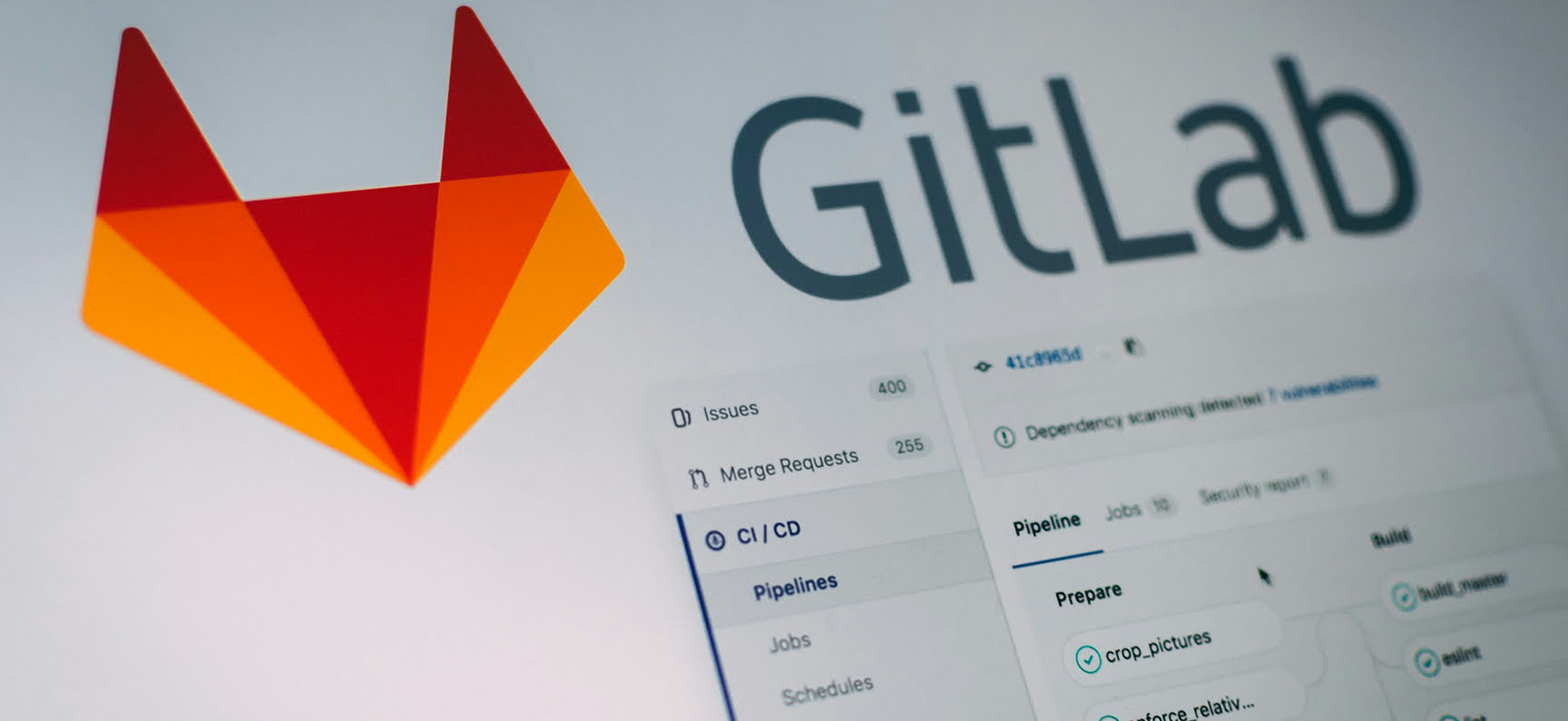In today’s fast-paced digital environment, agility, scalability, and efficiency are non-negotiable. As enterprises shift toward cloud-native development, containerization has become a cornerstone of modern DevOps workflows. It allows teams to package and deploy applications in a consistent, lightweight, and scalable way across any environment.
But containerization is only half the battle – managing containers at scale introduces complexity. That’s where container orchestration and management platforms step in. These tools automate deployment, scaling, health monitoring, and networking, making it possible to manage dynamic, container-based workloads with confidence and control.
Choosing the right platform can have a dramatic impact on performance, cost-efficiency, and operational resilience. That’s why it’s critical to evaluate the best container orchestration tools based on your unique business requirements, team capabilities, and infrastructure strategy.
And if you're looking to get started with limited budget or just want to test before you commit, a best free container management platforms comparison can help you identify feature-rich solutions that deliver real value without upfront cost.
This guide will break down what to look for, what tools lead the market, and how to select best container management platform to support your enterprise at scale.
Why Container Management Matters
Containers help developers package applications with everything they need – code, libraries, dependencies – so they run reliably anywhere. But managing hundreds (or thousands) of containers across environments isn’t simple.

That’s where container orchestration platforms come into play. These tools handle scaling, health monitoring, networking, load balancing, service discovery, and deployment. The right choice empowers your teams to move faster with fewer errors and less overhead.
From startup DevOps teams to global enterprises, finding a trusted container management platform is critical to scaling efficiently and securely.
Key Features to Look For in a Container Platform
When choosing container platforms for enterprise use, it’s not just about picking the most popular name. You need to evaluate based on your infrastructure, your workloads, and your DevOps maturity.

Here’s what to prioritize:
- Scalability: Can it handle hundreds or thousands of containers reliably?
- Security: Does it support isolation, access controls, and integrations with your identity systems?
- Integration: Is it compatible with your CI/CD pipelines, cloud provider, and monitoring stack?
- Ease of Use: How steep is the learning curve for setup, deployment, and troubleshooting?
- Flexibility: Can it run in hybrid or multi-cloud environments?
- Community & Ecosystem: Is there strong support, documentation, and third-party tooling?
Remember, the best containerization software for a large enterprise may differ from what works for a startup or mid-sized team. Your platform should fit your scale and use case – not the other way around.
Top Container Orchestration Tools List
Whether you're deploying your first containerized service or scaling up an enterprise-grade environment, this top container orchestration tools list gives you a snapshot of the best options available today – ranked by performance, adoption, ecosystem, and enterprise-readiness.
Here’s a list of the best container management software platforms currently leading the industry – based on functionality, adoption, and DevOps integration:
1. Kubernetes (K8s)
The undisputed king of container orchestration. Kubernetes is the most popular container orchestration platform, known for its flexibility, resilience, and strong community. It supports everything from simple microservices to complex multi-tenant architectures. It's open-source, vendor-neutral, and the gold standard in DevOps containerization.
2. Docker Swarm
Built into Docker Swarm is simpler than Kubernetes but more limited. It’s a good fit for teams already using Docker and looking for a lightweight solution. While it may not be the most powerful container orchestration tool, its ease of use makes it valuable for small-to-medium projects.
3. Amazon ECS & EKS
For teams operating on AWS, ECS and EKS offer managed container platforms that reduce operational overhead. ECS is AWS’s proprietary orchestrator, while EKS offers a managed Kubernetes service. Both integrate deeply with AWS tools, making them strong options for teams already using AWS DevOps services.
4. Red Hat OpenShift
A Kubernetes-based containerization platform with enterprise-grade support and extra developer tools. OpenShift provides advanced security, GitOps workflows, and robust monitoring – making it a top choice for regulated industries and large-scale deployments.
5. Google Kubernetes Engine (GKE)
Google’s fully managed Kubernetes service is highly scalable, integrates with other Google Cloud tools, and supports auto-scaling, load balancing, and advanced security out of the box. It's among the best free container management platforms, depending on your usage tier.
6. Azure Kubernetes Service (AKS)
Microsoft’s managed K8s platform, AKS is ideal for teams already working in Azure. It integrates well with Microsoft tools like Azure DevOps, Active Directory, and monitoring dashboards.
7. Nomad by HashiCorp
Lightweight and easy to deploy, Nomad supports not only containers but also VMs and other workloads. It’s a strong contender for hybrid infrastructure needs and a great alternative to Kubernetes for simpler use cases.
8. Rancher
Rancher is a complete container management platform built on top of Kubernetes, designed to make deploying and managing K8s clusters easier for teams. It provides a clean, user-friendly interface for managing multiple clusters, RBAC configuration, monitoring, and integrations with cloud and on-prem infrastructure. Rancher is a great option for enterprises that want more control over Kubernetes without the hassle of building a management layer from scratch.
9. Portainer
Portainer is a lightweight, intuitive management UI that simplifies running Docker, Docker Swarm, and Kubernetes environments. It’s popular among small to mid-sized teams for its ease of use, fast setup, and practical dashboards for container, image, and volume management. Portainer is particularly useful when you want to give non-expert users safe access to container environments with built-in governance.
10. Mirantis Kubernetes Engine (formerly Docker Enterprise)
Mirantis offers an enterprise-grade Kubernetes platform built for secure, reliable, and flexible infrastructure operations. It extends Kubernetes with tools for observability, lifecycle management, governance, and role-based access control. Its heritage as Docker Enterprise gives it strong capabilities in hybrid and multi-cloud environments, making it a solid choice for enterprises with complex containerization needs.
Best Free Container Management Platforms Comparison
Looking for cost-effective container orchestration without compromising performance or flexibility? Whether you’re running a lean startup, developing a proof of concept, or experimenting with microservices architecture, the right free container management platform can deliver serious value, without locking you into complex licensing or long-term contracts.
In today’s fast-moving tech field, many of the most popular container orchestration tools in DevOps actually start out as open-source. Why? Because they offer powerful features, broad community support, and the freedom to scale on your terms.
Here are some top free container management platforms for teams watching budgets:
| Platform | Best For | Pros | Cons |
| Kubernetes | High-scale environments and production-ready orchestration | Extremely flexible and extensible, vast community support, cloud-agnostic, integrates with nearly every tool in the DevOps ecosystem | Steep learning curve, operational overhead if self-managed, requires in-house expertise |
| Docker Swarm | Simple orchestration for smaller teams or single-node projects | Built into Docker, easy to get started, minimal configuration needed, great for quick Docker-native workloads | Less powerful than Kubernetes, weaker community support, limited scalability for complex needs |
| Nomad | Lightweight deployments across multiple workloads (containers, VMs, etc.) | Single binary deployment, very fast to get running, supports diverse environments, good for hybrid setups | Smaller ecosystem, less third-party tooling, not purpose-built for containers alone |
| K3s (Lightweight Kubernetes) | Edge computing, IoT projects, or low-resource environments | Fully CNCF-compliant K8s distro with reduced footprint, easy to install, perfect for lightweight or single-node use cases | Some advanced K8s features are stripped down or optional, not ideal for large-scale production systems |
These platforms are ideal for businesses that want to test orchestration workflows, validate infrastructure as code, or gradually scale into more advanced deployments without immediately committing to a managed or enterprise-grade platform.
Container Management Tools in DevOps Pipelines
The container orchestration tools don’t live in isolation – they plug directly into your CI/CD and infrastructure pipelines.
If your team is embracing ci/cd software development, your container platform should support automated deployments, rollbacks, image scanning, and observability. This is where platforms like Kubernetes and OpenShift shine, thanks to their native support for GitOps, Helm, and integrations with Jenkins, GitHub Actions, ArgoCD, and more.
Many of the platforms discussed also integrate seamlessly with the best DevOps tools in the industry – making them an ideal foundation for automated delivery, infrastructure as code, and secure workflows.
Modern DevOps managed services teams rely on container platforms to tie infrastructure, automation, and security into one cohesive delivery workflow.
Managed vs. Self-Hosted Container Platforms
When choosing container systems, one of the biggest decisions is whether to go self-managed or opt for a cloud provider’s managed service.
Managed platforms like Amazon EKS, Google GKE, and Azure AKS remove much of the operational burden – handling upgrades, patches, availability, and scaling. This is ideal for teams focused on application delivery, not infrastructure management.
Self-managed options like bare-metal Kubernetes or OpenShift offer more control and customization, but come with higher maintenance demands.
Ask yourself:
- Do we have the in-house expertise to run this?
- Do we need custom networking or security setups?
- How much control are we willing to trade for convenience?
For many enterprises, managed services strike the right balance between power and simplicity.
How to Select the Best Container Management Platform for Your Enterprise
Now that you know the landscape, here’s how to select the best container management platform based on your enterprise needs:
- Start with your team – Evaluate internal expertise. If you don’t have Kubernetes experts, a managed platform might be best.
- Match with your cloud provider – If you’re already invested in AWS, Azure, or GCP, use their native orchestration services.
- Define your goals – Are you optimizing for speed, security, compliance, scale, or cost?
- Pilot with real workloads – Don’t choose based on marketing. Run a pilot to see what works for your team in practice.
- Think long-term – Choose a platform that will scale with you. Avoid vendor lock-in unless it provides clear advantages.

Why Choose Artjoker for Container Management and DevOps
At Artjoker, we provide managed services that are purpose-built to help businesses adopt, optimize, and scale containerized environments with confidence. Whether you're deploying Kubernetes from scratch, migrating to a managed container platform, or integrating CI/CD across multiple teams, we deliver more than technical support – we deliver outcomes.
Our approach is rooted in real-world execution. We help you:
- Select the container orchestration tools based on your current and future needs.
- Architect scalable, secure systems using leading containerization platforms like Kubernetes, Docker, and OpenShift.
- Integrate powerful CI/CD pipelines that align with your deployment workflows and product goals.
- Automate infrastructure with Infrastructure as Code (IaC), observability, and governance built-in.
- Manage day-to-day operations so your developers can focus on building, not babysitting infrastructure.
Whether you’re a growing startup or an established enterprise, Artjoker gives you the expertise, tools, and strategic guidance you need to modernize your delivery pipeline – without getting bogged down in complexity.
Conclusion
The world of container management tools in DevOps is constantly evolving – but the principles stay the same: you need a platform that helps your teams deliver faster, scale smarter, and manage infrastructure with confidence.
Whether you’re evaluating a list of the best container management platforms or exploring free container management platforms, the key is finding the right balance of features, flexibility, and operational fit.
And if you're looking for expert support on selecting, implementing, and scaling containerized infrastructure – Artjoker offers managed services that take the guesswork out of modern delivery. From orchestration setup to CI/CD pipeline automation, we help you unlock the full power of containers.
Ready to choose a platform that works as hard as your team does? Let Artjoker help you build smarter, ship faster, and scale without limits.
Similar articles
View allyour business
together
- PROJECT INQUIRIES info@artjoker.net
- CALL US +1 213 423 05 84
contact us:











